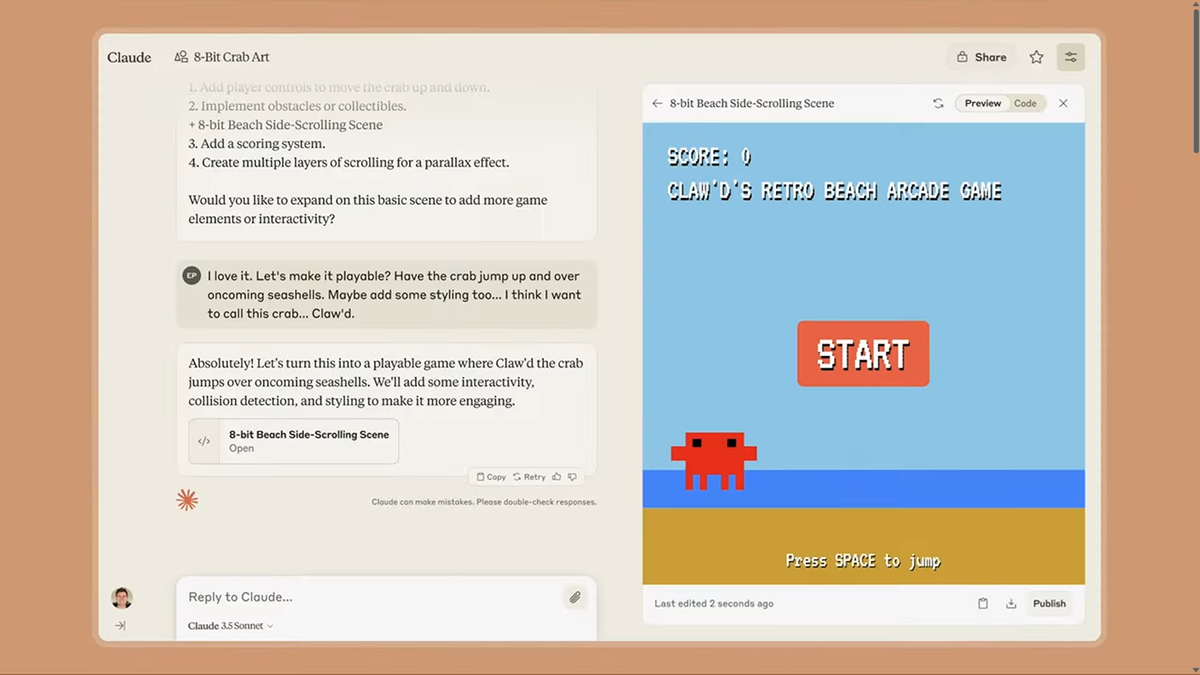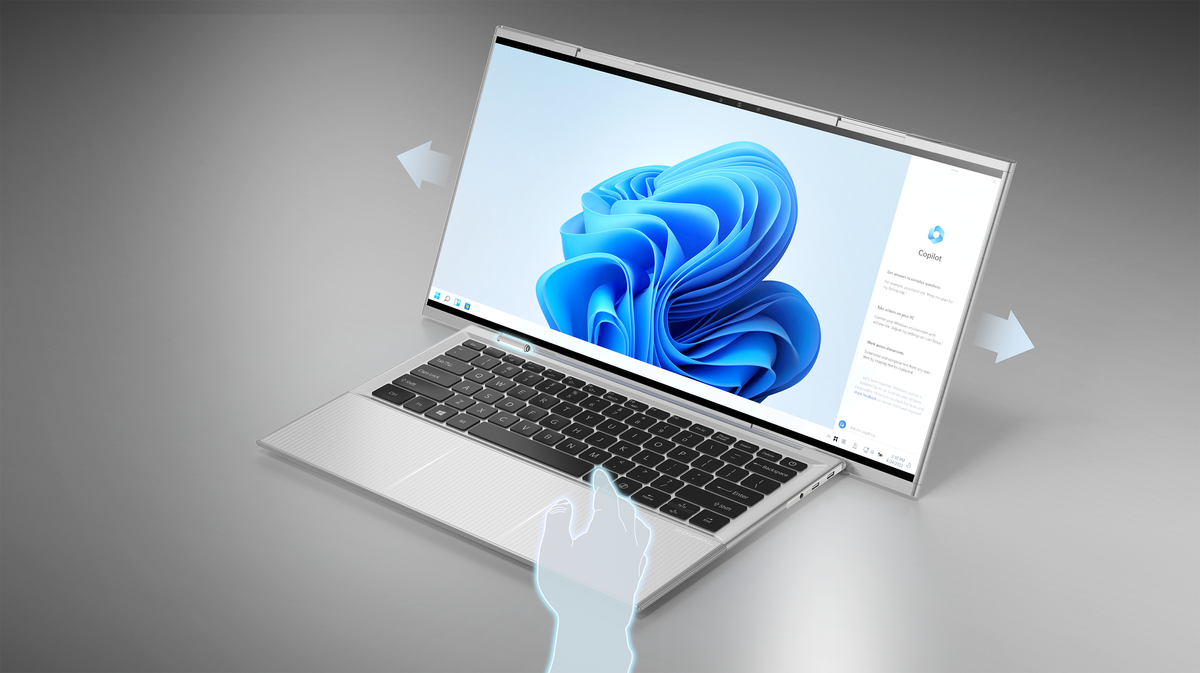Anthropic has launched the recently announced Artifacts feature for its generative AI chatbot Claude, which allows users to post, share, and even remix AI-generated content with each other. Artifacts are standalone pieces of content produced by Claude, including documents, images, code, and even interactive displays.
Additionally, you can now make your artifact public and view artifacts created by others with share links, such as ChatGPT share links. However, this isn’t just an opportunity to view someone else’s conversations with an AI chatbot – you can also remix them.
Basically, you can open published artifacts created by others and modify or build upon them through conversations with Claude. Anthropic presents this as a way to foster a collaborative environment by iterating on content created by Claude. The artifacts feature is powered by Claude 3.5 Sonnet, Anthropic’s latest AI model. According to the company, this latest AI model outperforms recent models like GPT-4o and Google’s Gemini 1.5 on several benchmarks.
When a user decides to remix an artifact, a new conversation is created in Claude that incorporates the original content. From there, the user can modify, expand, or use the artifact as inspiration for their own projects.
To remix an artifact, users simply need to look for the “Remix this artifact” button when viewing a published piece. Clicking this button starts a new conversation in Claude, where the original content is uploaded and ready to be modified. This capability transforms static AI-generated content into dynamic, evolving pieces, even if that just means tinkering with an image of a crab or making it the star of a simple video game.
See in the
AI Remix
To mitigate concerns about privacy and control, Anthropic allows users to unpublish a specific version of an artifact at any time by revisiting the corresponding Claude conversation and selecting the unpublish option. Additionally, if a conversation containing a published artifact is deleted, the public version of that artifact is also deleted.
Importantly, publishing or unpublishing one version of an artifact does not affect other versions. This flexibility allows users to manage multiple iterations of their content without interrupting collaborative efforts or losing progress.
Anthropic finds the remix option particularly useful for developers, content creators, and educators, who can now leverage existing AI-generated content and enhance it to fit their unique requirements. For users new to Artifacts, clicking “Remix this Artifact” will automatically enable this feature in your account. If you don’t already have a claude.ai account, you’ll be prompted to sign up, as you’ll need one.
Anthropic’s initiative to foster collaboration around AI conversations fits with the culture of AI content development. While Anthropic’s models are closed, the iterative nature of the Artifact remix reflects the open source movement in software development, where transparency and collective improvement drive innovation. As AI continues to become embedded in more aspects of everyday life and work, features like these will be essential to realizing its full potential.









